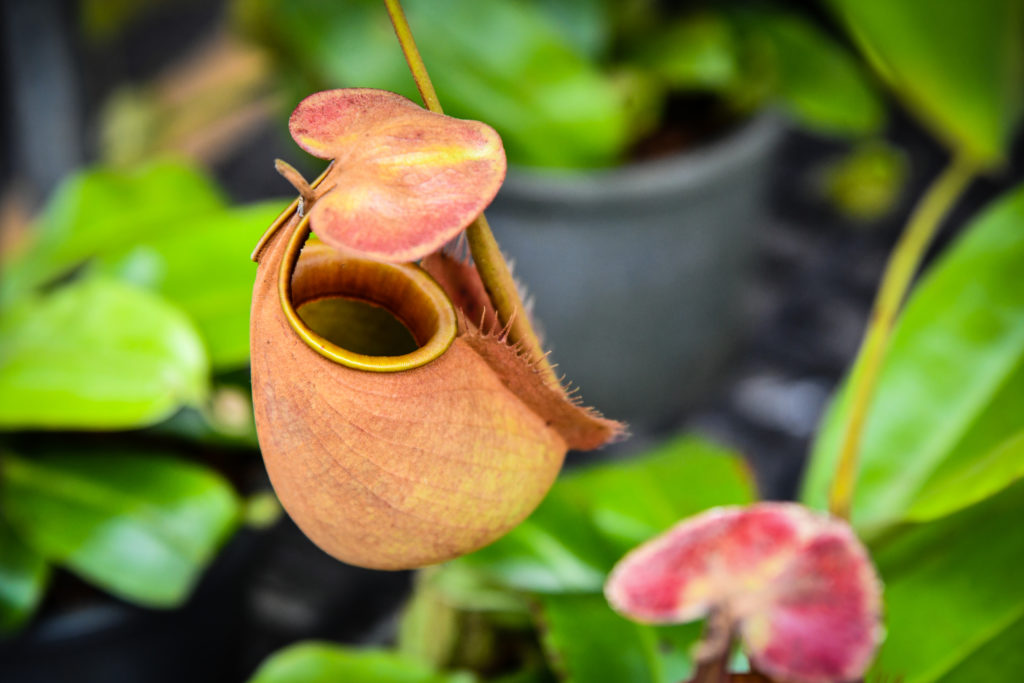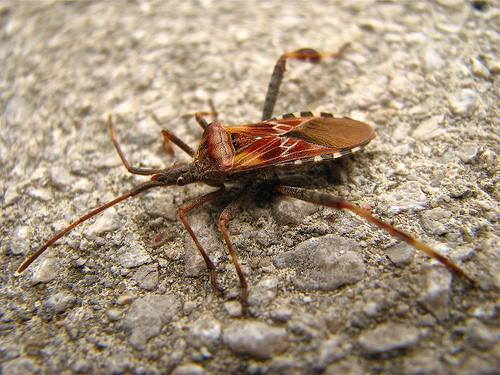Smelling plant diseases: New technology identifies plant diseases remotely in the field
Researchers at North Carolina State University have published an exciting study on a novel technology which allows farmers and extension workers to identify plant diseases remotely in the field using airborne chemical fingerprints. The newly developed handheld sensory device, which can be plugged into a smartphone, samples the airborne levels of volatile organic compounds (VOCs)…
Biological controls viable alternative to pesticides for rice farmers in China
Between 2011 and 2015, CABI set up 22 Trichogramma rearing facilities as part of a project to promote the use of biologically-based Integrated Pest Management (IPM) for rice and maize crops. In addition to creating the Trichogramma rearing facilities, IPM strategies for rice and maize were developed in Southwestern China, Laos and Myanmar.
Update: New Pest & Disease Records (05 August 2019)
We’ve selected a few of the latest new geographic, host and species records for plant pests and diseases from CAB Abstracts. Records this month include a report on the honey locust podgall midge (Dasineura gleditchiae) in Ireland, a report population fluctuations of fruit flies in guava orchards and a report on a new record of Helopeltis…
Crop-devastating pests in Rwanda to be targeted with space-age technology from PRISE programme
Pests, which threaten to destroy key cash and food security crops including maize, tomato and beans, are to be prioritized as part of an integrated pest management strategy using state-of-the-art space-age technology. Scores of smallholder farmers in Rwanda are the latest to benefit from the CABI-led consortium, funded by the UK Space Agency and the Global Challenges Research…
Test your plant health knowledge with the plant doctor quiz
>> Latest quiz just added Plantwise plant doctors are at the heart of our plant clinic network providing advice and information to farmers, logging their data for the Plantwise Knowledge Bank, and always adapting to new outbreaks and technologies. Think you’ve got what it takes to be a plant doctor? Take our online plant health…
COSMIC: Workshop to develop locust management tools in China
Grassland habitats play an important ecological and economic role in Inner Mongolia, China. The primary threats to this ecosystem are grasshoppers and locusts, which are major pest insects across China. There are currently a range of monitoring and management strategies in place to control and reduce the damage caused by these pest species. However, successful…
Soil-dwelling worms threatening farmers’ livelihoods
By Wilson Odhiambo. Originally published on SciDev.Net. As soil-dwelling worms threaten smallholders’ livelihoods, governments should act fast, writes Wilson Odhiambo. David Magondo, a father of three from Central Kenya, has been farming for over 35 years in an activity that has helped him feed and take care of his family. But the once dependable source…
CABI calls for greater investment in food security programmes to help stem global rise in hunger
CABI is today calling for greater investment in food security programmes to help stem the global rise in hunger following the publication of a UN report which says more than 820 million people worldwide are still going hungry. The report, from the UN Food and Agriculture Organization (FAO), the International Fund for Agricultural Development (IFAD), the UN Children’s Fund (UNICEF), the World Food Programme (WFP)…
Aerobotics: Supporting precision agriculture across Africa
Aerobotics, a Cape Town-based agritech startup company has recently partnered with the South African Federation of Agricultural Organisations (AgriSA) to launch a free data service for farmers using a range of spectral imaging technology. As a company, Aerobotics specialises in farm monitoring processes using a number of modern spectral imaging technologies, including satellite and drone…
Update: New Pest & Disease Records (06 July 2019)
This month’s pest alerts include the first reports in Zakopane, Poland of the western conifer seed bug Leptoglossus occidentalis and Sceliphron destillatorium (© Pexels) We’ve selected a few of the latest new geographic, host and species records for plant pests and diseases from CAB Abstracts. Records this month include new species of Hexamermis Steiner parasitizing Epilachna paenulata in Argentina, the…










